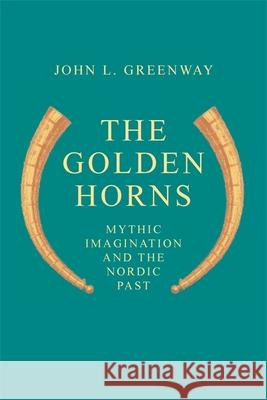The Golden Horns: Mythic Imagination and the Nordic Past » książka
The Golden Horns: Mythic Imagination and the Nordic Past
ISBN-13: 9780820332574 / Angielski / Miękka / 2008 / 232 str.
As an introduction to modern myth, "The Golden Horns" masterfully encompasses a wide circle of historical and literary materials. John Greenway first establishes the theoretical base of his discussion by examining the nature of time in Norse mythic consciousness. After suggesting several ways in which the mythic apprehension of reality conditioned medieval Icelandic narrative, he then elaborates on the dialectical relationship between myth and reason.
Maintaining that myth is neither true nor false but always either expressive or not, the author then traces the origin, rise, and fall of two great modern myths of northern birth: seventeenth century Swedish Gothicism and the Ossianic craze of the eighteenth century--both of which illustrate the singular tension in the modern mind between mythic imperatives and the impulse to de-mythologize.
Finally, "The Golden Horns" traces the romantic belief in a "new mythology" which synthesizes myth and reason from its early acceptance through its eventual repudiation. In his conclusions about the state of myth in the modern world, Greenway postulates that we have inherited the romantic respect for myth as truth but lack the romantic faith in transcendence necessary to establish myth's reality. Consequently, we express our mythic consciousness of who we are in quasi-scientific language, consciously manipulating mythic symbols for social control.











